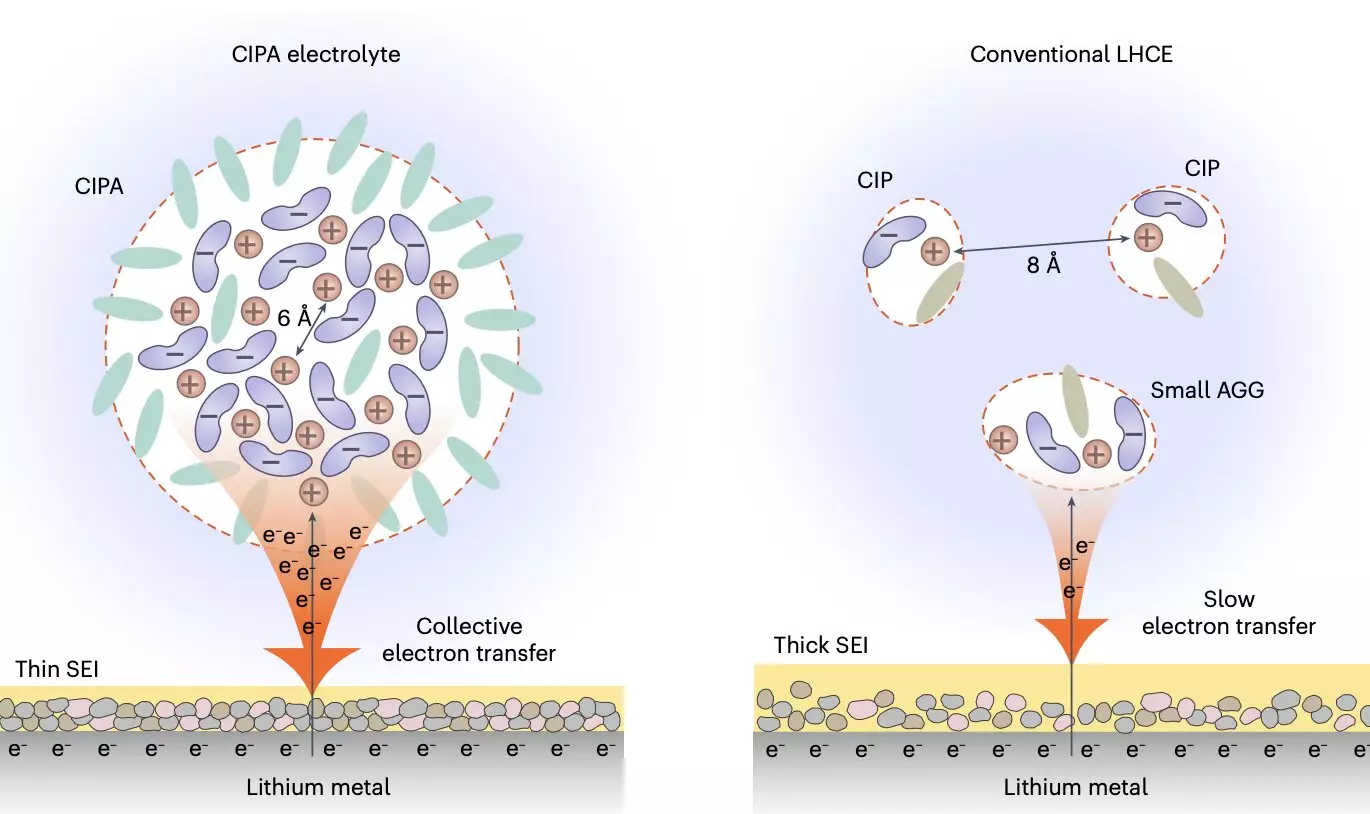The potential for lithium-metal batteries to revolutionize energy storage is hindered by significant limitations, primarily a short lifespan. However, recent research from the University of Science and Technology of China has introduced a new electrolyte design that could address these challenges. By creating a unique nanometer-scale solvation structure, researchers are aiming to develop highly performing lithium-metal pouch cells with longer lifespans.
While lithium-metal batteries offer much higher energy densities than the current lithium-ion batteries, they have a limited cycle life of approximately 50 cycles. This is significantly lower than the 1,000 cycles that commercial lithium-ion batteries can typically achieve. The main reasons for this decreased lifespan are the growth of lithium dendrites, the reactivity of lithium-metal, and high-voltage transition metal cathodes, which contribute to the degradation of the electrolyte.
In response to these challenges, Prof. Shuhong Jiao and her research team have developed an electrolyte that stabilizes the interfaces between electrodes and electrolytes in lithium-metal batteries. By suppressing the degradation of the electrolyte, the new design aims to extend the lifespan of lithium-metal batteries significantly. This electrolyte is composed of affordable molecules and features a unique solvation structure that sets it apart from traditional electrolyte designs.
The electrolyte designed by Prof. Jiao and her colleagues focuses on the interaction between ion pairs to create a compact ion-pair aggregate structure. This structure allows for rapid reduction of anions on the surface of lithium, forming a stable solid-electrolyte interphase (SEI) that suppresses the decomposition of the electrolyte. Additionally, the electrolyte exhibits good oxidative stability and prevents the dissolution of transition metal elements from the cathode, leading to stable cycling for a prolonged number of cycles.
Initial tests of the new electrolyte in a 500 Wh/kg lithium-metal pouch cell showed promising results, with 91% energy retention after 130 cycles. The researchers are now focusing on further extending the cycle life of these cells to more than 1,000 cycles. Additionally, the team is exploring ways to increase the energy density of lithium-metal batteries even further, aiming for 600 Wh/kg with 100-200 cycles. This innovative electrolyte design has the potential to open up new avenues for the development of lithium-metal batteries with improved performance and longevity.
Overall, the research conducted by Prof. Jiao and her team represents a significant step towards overcoming the limitations of lithium-metal batteries. By focusing on the electrolyte design and creating a unique solvation structure, they have demonstrated the potential to extend the lifespan and improve the performance of these next-generation battery technologies. As the study continues to evolve, it is likely to inspire further research and innovation in the field of energy storage, paving the way for increasingly efficient and sustainable battery solutions.


Leave a Reply